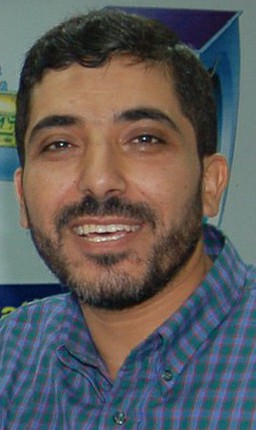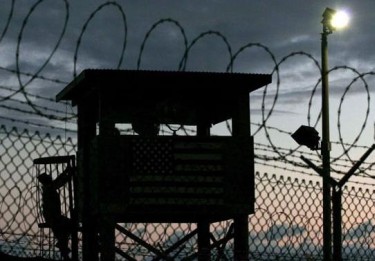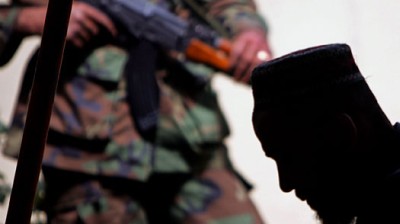2 Afghans allege abuse at U.S. site
By Joshua Partlow and Julie Tate, Washington Post, November 28, 2009
Two Afghan teenagers held in U.S. detention north of Kabul this year said they were beaten by American guards, photographed naked, deprived of sleep and held in solitary confinement in concrete cells for at least two weeks while undergoing daily interrogation about their alleged links to the Taliban.
The accounts could not be independently substantiated. But in successive, on-the-record interviews, the teenagers presented a detailed, consistent portrait suggesting that the abusive treatment of suspected insurgents has in some cases continued under the Obama administration, despite steps that President Obama has said would put an end to the harsh interrogation practices authorized by the Bush administration after the Sept. 11, 2001, attacks.
The two teenagers — Issa Mohammad, 17, and Abdul Rashid, who said he is younger than 16 — said in interviews this week that they were punched and slapped in the face by their captors during their time at Bagram air base, where they were held in individual cells. Rashid said his interrogator forced him to look at pornography alongside a photograph of his mother. [continued…]
Afghans detail detention in ‘black jail’ at U.S. base
By Alissa J Rubin, New York Times, November 29, 2009
An American military detention camp in Afghanistan is still holding inmates, sometimes for weeks at a time, without access to the International Committee of the Red Cross, according to human rights researchers and former detainees held at the site on the Bagram Air Base.
The site, known to detainees as the black jail, consists of individual windowless concrete cells, each illuminated by a single light bulb glowing 24 hours a day. In interviews, former detainees said that their only human contact was at twice-daily interrogation sessions.
“The black jail was the most dangerous and fearful place,” said Hamidullah, a spare-parts dealer in Kandahar who said he was detained there in June. “They don’t let the I.C.R.C. officials or any other civilians see or communicate with the people they keep there. Because I did not know what time it was, I did not know when to pray.”
The jail’s operation highlights a tension between President Obama’s goal to improve detention conditions that had drawn condemnation under the Bush administration and his stated desire to give military commanders leeway to operate. While Mr. Obama signed an order to eliminate so-called black sites run by the Central Intelligence Agency in January, it did not also close this jail, which is run by military Special Operations forces. [continued…]
Matthew Hoh speaks grim truth to power
By Roger Morris and George Kenney, Huffington Post, November 27, 2009
The rare resignation on principle is always telling in American government. When Matthew Hoh recently left the State Department — a Marine Captain in Iraq who became a diplomat in Afghanistan — his act was significant far beyond the first reports.
Hoh speaks grim truth to power. His message is that to pursue the Afghan war policy in any guise — regardless of the troop level President Obama now chooses — will be utter folly, trapping America in an unwinnable civil war in the Hindu Kush, and only fueling terrorism. [continued…]
Senate report explores 2001 escape by bin Laden from Afghan mountains
By Scott Shane, New York Times, November 29, 2009
As President Obama vows to “finish the job” in Afghanistan by sending more troops, the Senate Foreign Relations Committee has completed a detailed look back at a crucial failure early in the battle against Al Qaeda: the escape of Osama bin Laden from American forces in the Afghan mountains of Tora Bora in December 2001.
“Removing the Al Qaeda leader from the battlefield eight years ago would not have eliminated the worldwide extremist threat,” the committee’s report concludes. “But the decisions that opened the door for his escape to Pakistan allowed bin Laden to emerge as a potent symbolic figure who continues to attract a steady flow of money and inspire fanatics worldwide.”
The report, based in part on a little-noticed 2007 history of the Tora Bora episode by the military’s Special Operations Command, asserts that the consequences of not sending American troops in 2001 to block Mr. bin Laden’s escape into Pakistan are still being felt.
The report blames the lapse for “laying the foundation for today’s protracted Afghan insurgency and inflaming the internal strife now endangering Pakistan.”
Its release comes just as the Obama administration is preparing to announce an increase in forces in Afghanistan. [continued…]

 On a cold Ukrainian winter night in mid-February 2011, a Gaza civil engineer named Dirar Abu Sisi was lying in bed in a railroad sleeper car traveling to Kiev to visit his brother, Yousef, whom he hadn’t seen in 15 years.
On a cold Ukrainian winter night in mid-February 2011, a Gaza civil engineer named Dirar Abu Sisi was lying in bed in a railroad sleeper car traveling to Kiev to visit his brother, Yousef, whom he hadn’t seen in 15 years. Osama Bin Laden’s favourite son, Omar, recently abandoned his father’s cave in favor of spending his time dancing and drooling in the nightclubs of Damascus. The tang of freedom almost always trumps Islamist fanaticism in the end: three million people abandoned the Puritan hell of Taliban Afghanistan for freer countries, while only a few thousand faith-addled fanatics ever traveled the other way. Osama’s vision can’t even inspire his own kids. But Omar Bin Laden says his father is banking on one thing to shore up his flailing, failing cause — and we are giving it to him.
Osama Bin Laden’s favourite son, Omar, recently abandoned his father’s cave in favor of spending his time dancing and drooling in the nightclubs of Damascus. The tang of freedom almost always trumps Islamist fanaticism in the end: three million people abandoned the Puritan hell of Taliban Afghanistan for freer countries, while only a few thousand faith-addled fanatics ever traveled the other way. Osama’s vision can’t even inspire his own kids. But Omar Bin Laden says his father is banking on one thing to shore up his flailing, failing cause — and we are giving it to him. ne quiet, wintry night last year in the eastern Afghan town of Khost, a young government employee named Ismatullah simply vanished. He had last been seen in the town’s bazaar with a group of friends. Family members scoured Khost’s dust-doused streets for days. Village elders contacted Taliban commanders in the area who were wont to kidnap government workers, but they had never heard of the young man. Even the governor got involved, ordering his police to round up nettlesome criminal gangs that sometimes preyed on young bazaar-goers for ransom.
ne quiet, wintry night last year in the eastern Afghan town of Khost, a young government employee named Ismatullah simply vanished. He had last been seen in the town’s bazaar with a group of friends. Family members scoured Khost’s dust-doused streets for days. Village elders contacted Taliban commanders in the area who were wont to kidnap government workers, but they had never heard of the young man. Even the governor got involved, ordering his police to round up nettlesome criminal gangs that sometimes preyed on young bazaar-goers for ransom.